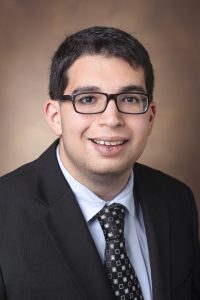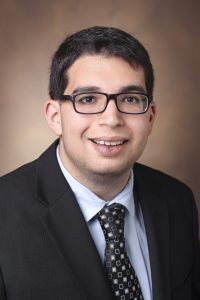Building Bridges in a Southern City
This week’s post is by Jacob Ruden, the co-founder Jewsic City Shabbat, a monthly musical Shabbat in Nashville, TN.
The work of Jewsic City Shabbat in Nashville, TN aligns closely with propositions 1 (wisdom), 3 
We created Jewsic City Shabbat with the intention of building and strengthening a community (proposition 3). The Jewsic City Shabbat co-founders noticed that there were very few young Jewish professionals at an average Shabbat service at any of the Nashville synagogues. We hypothesized that there were plenty of young Jewish professionals in Nashville who would be interested in attending a Shabbat service if certain barriers were eliminated. We’ve done this in several ways. First, Jewsic City Shabbat has a later Kabbalat Shabbat start-time than the start-time of any Nashville synagogue, which works well for young professionals. Second, the service is hosted in spaces that are not affiliated with Nashville’s organized Jewish community, making it “safer” for Jews who may be ambivalent about identifying with the Jewish community. Third, we include a catered meal before our services. Fourth and finally, we encourage active participation by our attendees during each service. We ask those attendees that can play an instrument to bring it with them and jam along during the service. And we ask all attendees to sing along with us for every prayer. In the middle of every service, one of our attendees gives a d’var Torah that can address the parshah, current events, or really anything of interest to the speaker.
Our average attendance at each Jewsic City Shabbat is about 40, with the vast majority of those attendees being young Jewish professionals. At Jewsic City Shabbat, everyone comes together and schmoozes over Shabbat dinner before participating in a service where we ask for names of those in need of healing prior to the Mi Shebeirach and for names of those our attendees are remembering prior to On and On (L’dor Vador). Even during dessert, we are often celebrating the birthday(s) of those in attendance. Many of our attendees leave a Jewsic City Shabbat service with new friends.
One aspect of proposition 3 (community) that is not true for Jewsic City Shabbat is the potential for participants to drop their synagogue memberships. In fact, many of our attendees who enter their first Jewsic City Shabbat unaffiliated with any synagogue end up exploring the services and other events offered by one or more of the Nashville synagogues during the weeks that Jewsic City Shabbat does not meet. Jewsic City Shabbat is not a synagogue and we are not trying to and do not want to compete with the synagogues in Nashville. Synagogues coordinate lifecycle events, have weekly Shabbat services that include reading from the Torah, and do many other things that Jewsic City Shabbat does not do. We view Jewsic City Shabbat attendance as complementary to synagogue membership.
We attempt to incorporate kedusha (proposition 4) into every Jewsic City Shabbat. At the beginning of every service, I read an intentionality statement to create an explicit transition from schmoozing to prayer. Many of our attendees’ Divrei Torah have addressed how we can bring more kedusha into our daily lives. We have had multiple guided meditation Divrei Torah and people seem to really appreciate the quiet, reflective tone that provides.
We are grateful that Jewsic City Shabbat was invited to apply for grant funding from the Jewish Federation & Jewish Foundation of Nashville and Middle Tennessee. We have now received funding from them for three years in a row so far. Our very success has brought Federation along so that are increasingly attuned to the trends outlined in the lead chapter of Jewish Megatrends. One encouraging development is that the support we have received from the Jewish Federation is now being reciprocated in that more and more of our attendees have begun to contribute to and/or make phone calls to encourage others to contribute to our Federation’s annual campaign. It reflects the good things that can happen when start-ups can work collaboratively with legacy Jewish organizations. I hope that other Federations choose to follow our Federation’s lead.
Jewsic City Shabbat embodies wisdom, community, and kedushah, and we hope that our group remains an integral facet of the Nashville Jewish community for many years to come.
[themify_hr color=”black” width=”100%”]
Jacob Ruden is a Neuroscience PhD Candidate at Vanderbilt University. He is the co-founder of Jewsic City Shabbat, a monthly musical Shabbat service and dinner hosted in homes across Nashville, TN.


